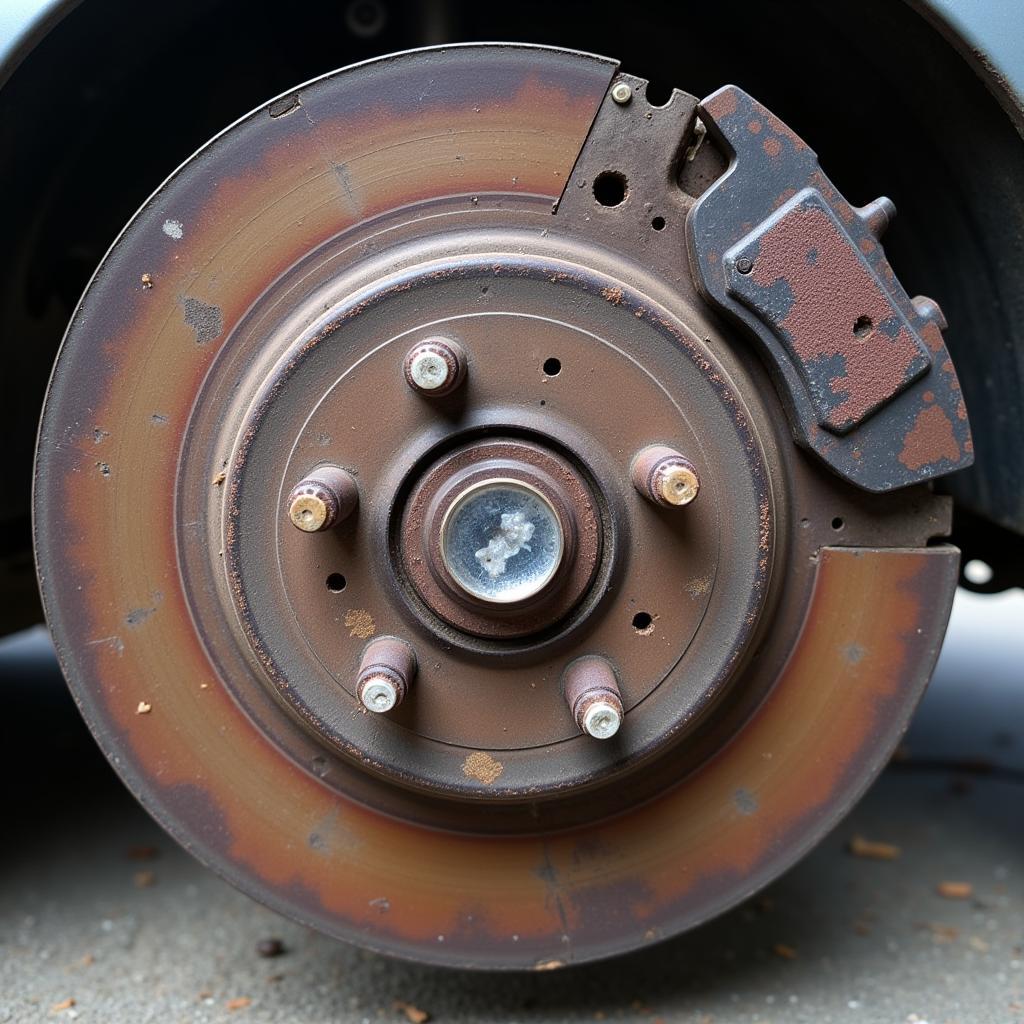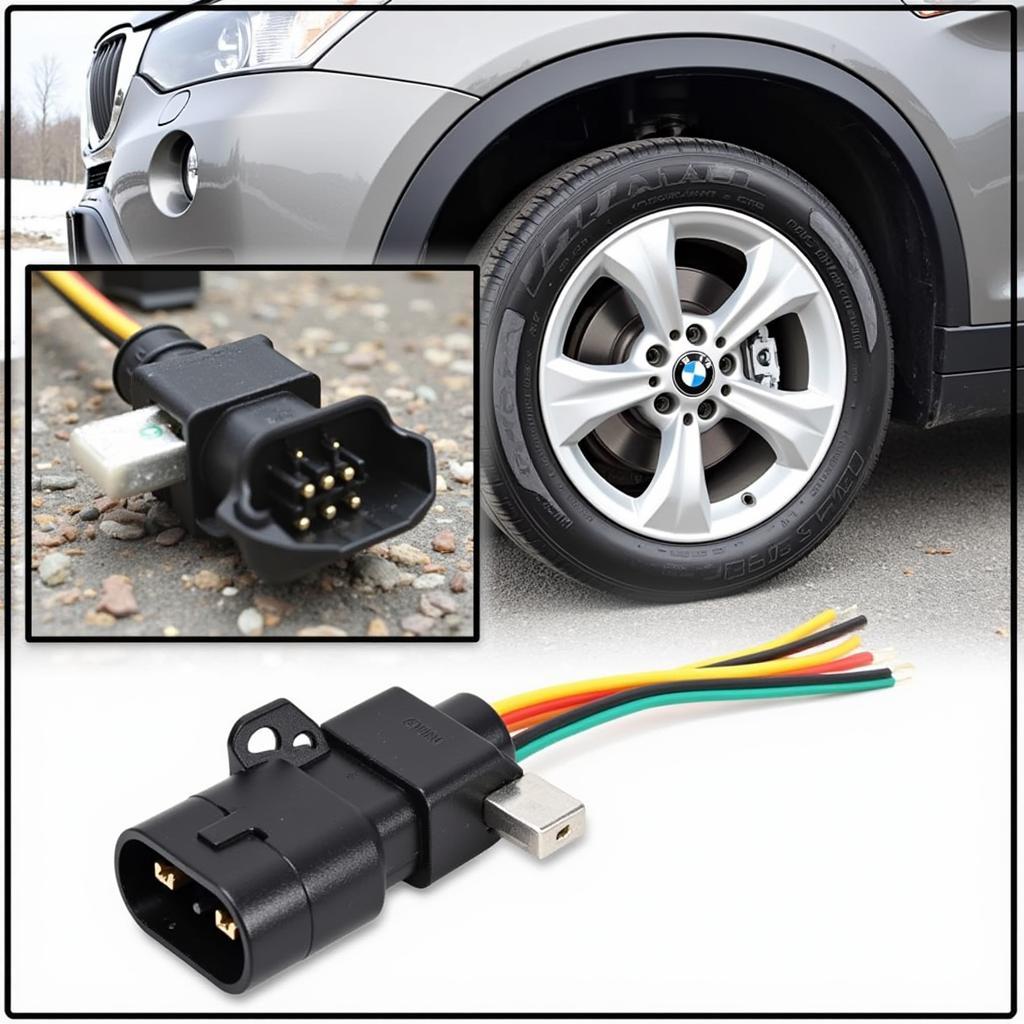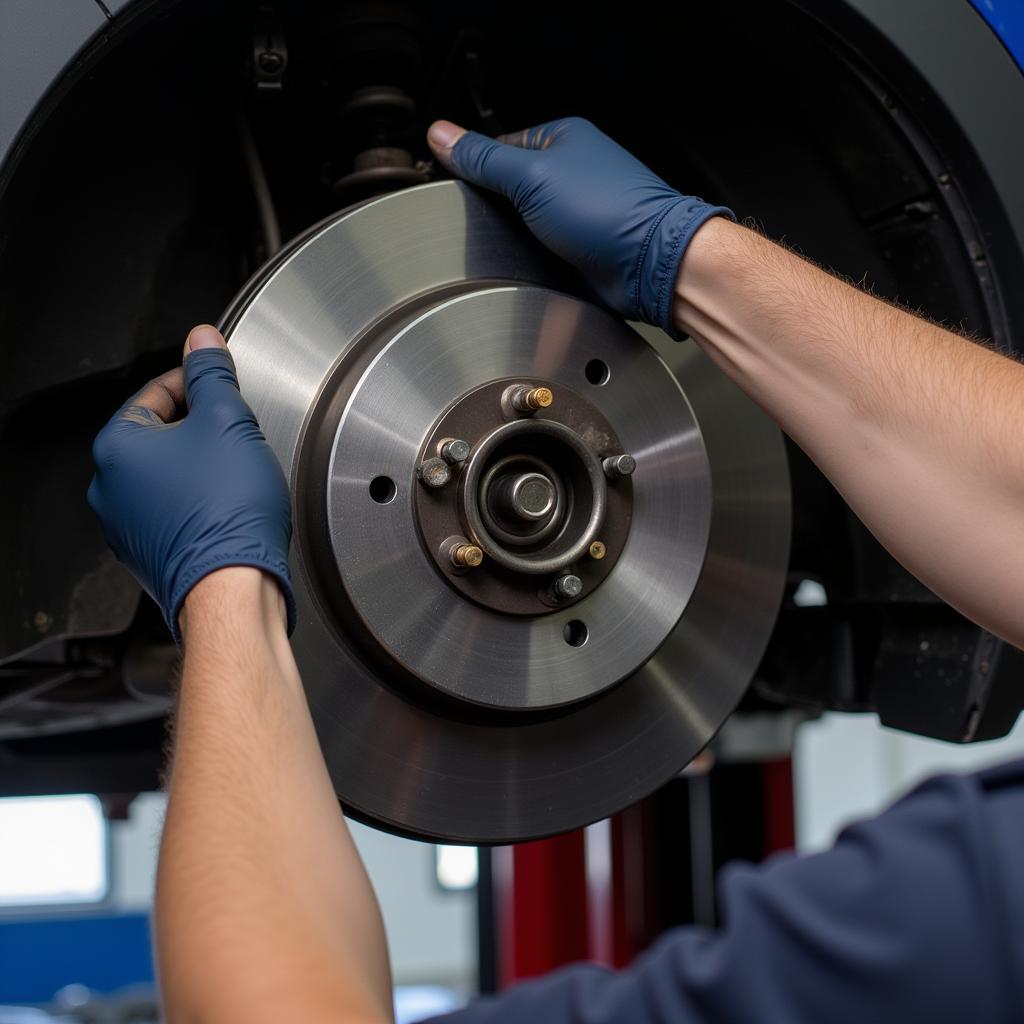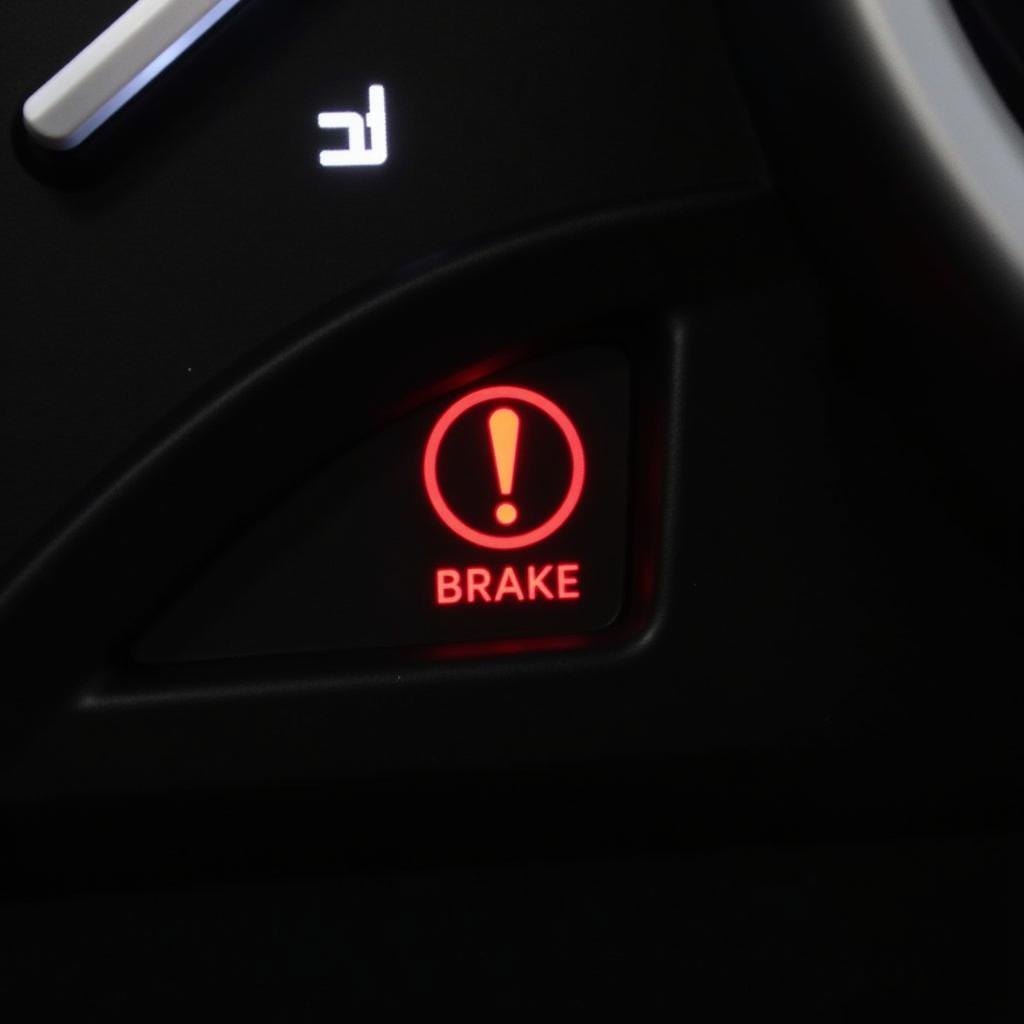The brake warning light on your 2002 BMW 325i dashboard is a crucial safety feature. When illuminated, it signals a potential problem with your braking system that requires immediate attention. Ignoring this warning light could lead to brake failure, putting you and others at risk. This comprehensive guide explores the common causes of a 2002 BMW 325i brake warning light and provides potential solutions to get you back on the road safely.
Understanding Your BMW’s Braking System
Before delving into the causes, it’s helpful to understand the basics of your BMW’s braking system. The system uses hydraulic pressure to apply force to the brake pads, which then clamp down on the rotors to slow or stop the vehicle. Several components work together to ensure optimal braking performance:
- Brake Fluid: This hydraulic fluid transmits pressure from the brake pedal to the brake calipers.
- Brake Master Cylinder: This component pressurizes the brake fluid when you press the brake pedal.
- Brake Calipers: These components house the brake pads and pistons, converting hydraulic pressure into mechanical force.
- Brake Pads and Rotors: The brake pads are pressed against the rotors to generate friction, slowing the vehicle.
Common Causes of a Brake Warning Light
A 2002 BMW 325i brake warning light can illuminate for various reasons. Here are some of the most common culprits:
1. Low Brake Fluid Level
One of the most frequent causes is low brake fluid. Brake fluid can decrease due to worn brake pads or a leak in the system.
Solution:
- Check the brake fluid level in the reservoir. If it’s low, add the recommended brake fluid for your BMW.
- Important: If you need to add brake fluid frequently, there might be a leak in the system. Consult a qualified mechanic to diagnose and repair the leak.
2. Worn Brake Pads
Brake pads naturally wear down over time due to friction. Thin brake pads can trigger the warning light.
Solution:
- Inspect your brake pads for wear. If they are thin or nearing the wear indicators, replace them.
- Tip: It’s often best to replace all four brake pads simultaneously to ensure even braking performance.
 Worn brake pads on a BMW 325i
Worn brake pads on a BMW 325i
3. Faulty Brake Pad Sensor
Many BMWs, including the 325i, have brake pad wear sensors. These sensors are small wires embedded within the brake pad material. When the pads wear down to a certain point, the sensor triggers the warning light.
Solution:
- If your brake pads are worn or you’ve recently replaced them, the brake pad sensor might need replacement.
4. ABS Issue
The Anti-lock Braking System (ABS) prevents the wheels from locking up during hard braking. A malfunctioning ABS system can also trigger the brake warning light.
Solution:
- Diagnosing ABS issues requires specialized equipment. If you suspect an ABS problem, it’s best to take your car to a qualified mechanic or dealership.
 BMW ABS sensor and wiring harness
BMW ABS sensor and wiring harness
5. Brake Light Problems
While less common, a faulty brake light switch or blown brake light bulb can sometimes trigger the brake warning light.
Solution:
- Inspect your brake lights and replace any blown bulbs.
- If the bulbs are fine, the brake light switch might be faulty and require replacement.
6. Issues with the Parking Brake
On some BMW models, engaging the parking brake without fully releasing it can cause the brake warning light to stay on.
Solution:
- Ensure the parking brake is fully disengaged. If the light remains on, there might be a problem with the parking brake sensor or mechanism.
Diagnosing the Issue
Diagnosing the exact cause of a brake warning light can be challenging without proper tools and knowledge.
What if the brake warning light is flashing?
A flashing brake warning light typically indicates a more serious problem, often related to the ABS system or a significant brake fluid leak. In such cases, it’s crucial to stop driving immediately and have your BMW towed to a qualified mechanic for diagnosis and repair.
Expert Insight:
“Ignoring a brake warning light can lead to costly repairs down the road,” says Jake Carter, a senior automotive technician with over 15 years of experience. “Addressing the issue promptly ensures your safety and prevents further damage to your vehicle’s braking system.”
Conclusion
A 2002 BMW 325i brake warning light is a crucial safety feature you should never ignore. By understanding the common causes and potential solutions outlined in this guide, you can take appropriate action to ensure your safety on the road.
Remember: When in doubt, always consult a qualified mechanic or your BMW dealership for proper diagnosis and repair. Your safety is paramount.
Frequently Asked Questions
1. Can I drive my BMW with the brake warning light on?
It’s strongly advised not to drive with the brake warning light on. Doing so could lead to brake failure and potentially dangerous situations.
2. How much does it cost to fix a brake warning light on a 2002 BMW 325i?
The repair cost varies depending on the underlying cause. Simple fixes like brake pad replacement are less expensive than major repairs like a new ABS module.
3. How often should I check my BMW’s brake fluid level?
It’s good practice to check your brake fluid level at least once a month and top it off if needed.
4. How long can I drive on worn brake pads?
Driving on worn brake pads is dangerous. If you suspect your brake pads are nearing the end of their lifespan, have them inspected and replaced immediately.
5. Is it safe to replace my BMW brake pads myself?
While possible, replacing brake pads requires some mechanical knowledge. If you’re uncomfortable working on your car, it’s best to leave it to the professionals.


